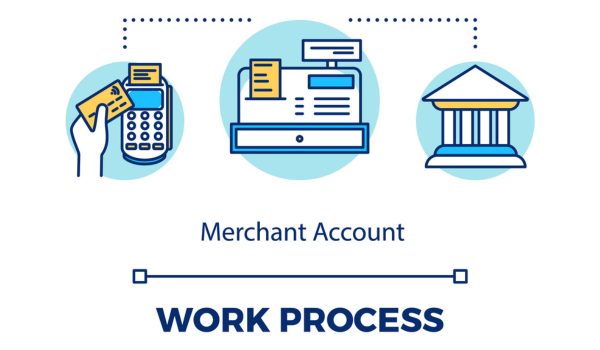
Merchant services vs square - Introduction
In today's business landscape, accepting credit and debit card payments is crucial to the success of any business. Merchant services refer to a range of services that enable businesses to accept and process electronic payments, including credit and debit card processing, ACH payments, virtual terminals, and point-of-sale (POS) systems. These services are designed to streamline payment processing, improve cash flow, and increase sales.
Square is a popular payment processing company that offers a range of services, including a mobile card reader, payment processing software, and an online payment gateway. Square has gained popularity among small businesses due to its ease of use and affordable pricing. While Square does offer many of the same services as traditional merchant services, it is important to understand the differences and similarities between the two options before deciding which is right for your business.
Merchant services
Merchant services in California are a range of services that enable businesses to accept and process electronic payments. The main merchant services include credit and debit card processing, ACH payments, virtual terminals, and point-of-sale (POS) systems.
Credit and debit card processing allows businesses to accept payments from customers via credit and debit cards. ACH payments, or automated clearing house payments, enable businesses to accept payments directly from customers' bank accounts. Virtual terminals allow businesses to accept payments over the phone or via mail, while POS systems are used for in-person transactions.
The benefits of using merchant services are significant. By accepting electronic payments, businesses can increase sales and improve cash flow. This is because customers are more likely to purchase if they can use a credit or debit card, and electronic payments are processed faster than traditional payment methods, such as checks. Merchant services also streamline payment processing, making it easier and more efficient for businesses to manage their finances. Overall, merchant services are essential for any business that wants to stay competitive and meet the evolving needs of its customers.
Square
Square is a payment processing company that offers a range of services to businesses, including credit and debit card processing, virtual terminals, and POS systems. Square has become popular among small businesses due to its ease of use, affordable pricing, and mobile card reader.
When comparing Square to traditional merchant services, there are some key differences. While traditional merchant services often require a contract and may have higher fees, they also typically offer more features and options for customization. Square, on the other hand, offers more affordable pricing and an easy-to-use platform, but may have limited features and potentially longer account holds.
Square's features include a mobile card reader that can be attached to a smartphone or tablet, payment processing software, and an online payment gateway. These tools make it easy for businesses to accept payments, even on the go. Square also offers features like inventory management, sales reporting, and invoicing.
One advantage of using Square is its ease of use and affordable pricing. Small businesses can start accepting payments quickly and easily without having to sign a long-term contract. Square also offers a simple and intuitive interface that makes it easy for businesses to manage their finances. However, Square's potential for account holds and limited features may be a disadvantage for some businesses.
Overall, Square can be a great option for small businesses or those just starting. However, it's important to consider the potential limitations and compare the features and pricing to traditional merchant services before making a decision.
Comparison of Merchant Services and Square
When comparing merchant services to Square, there are several factors to consider, including pricing structures, features and capabilities, and which option is best suited for different types of businesses.
In terms of pricing structures, traditional merchant services typically charge a percentage of each transaction, along with monthly fees and equipment costs. Square, on the other hand, charges a flat rate for each transaction, with no monthly fees or equipment costs. For businesses with lower transaction volumes, Square's pricing structure may be more affordable.
When it comes to features and capabilities, traditional merchant services offer more options for hardware and software customization, along with more payment processing options, such as accepting payments through mobile apps or online marketplaces. Traditional merchant services also typically offer more comprehensive customer support. Square, on the other hand, offers a simple and intuitive platform that is easy to use, along with features like inventory management, sales reporting, and invoicing.
Ultimately, the option that is best suited for a particular business will depend on its individual needs and budget. Businesses with higher transaction volumes or more complex payment processing needs may benefit more from traditional merchant services. On the other hand, small businesses or those with lower transaction volumes may find that Square's affordability and ease of use are a better fit.
Both merchant services and square offer benefits and drawbacks depending on a business's individual needs. It's important to carefully consider these factors before choosing the option that is right for your business.
Conclusion
In conclusion, both merchant services and square offer important benefits to businesses that want to accept electronic payments. Merchant services offer a range of options for payment processing, hardware and software customization, and comprehensive customer support. Square, on the other hand, offers an affordable and easy-to-use platform with features like inventory management and invoicing.
Ultimately, the option that is best for a particular business will depend on its individual needs and budget. Businesses with higher transaction volumes or more complex payment processing needs may benefit more from traditional merchant services. On the other hand, small businesses or those with lower transaction volumes may find that Square's affordability and simplicity are a better fit.
Overall, the importance of accepting electronic payments cannot be overstated. By offering customers the ability to pay with credit and debit cards, businesses can increase sales, improve cash flow, and streamline payment processing. Whether you choose traditional merchant services or Square, it's important to carefully consider your business's needs and budget before making a decision.







